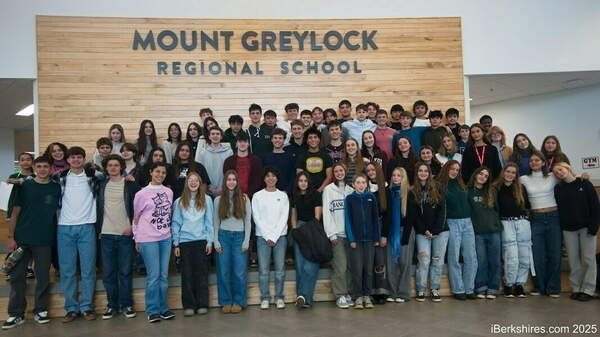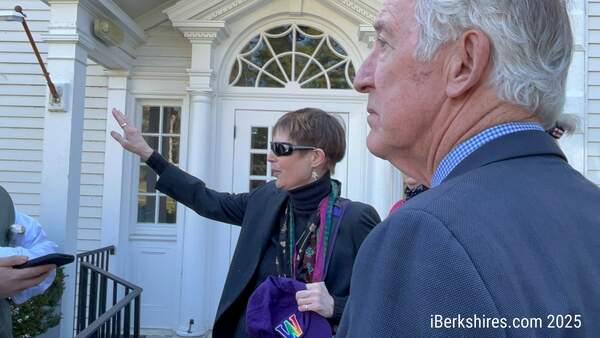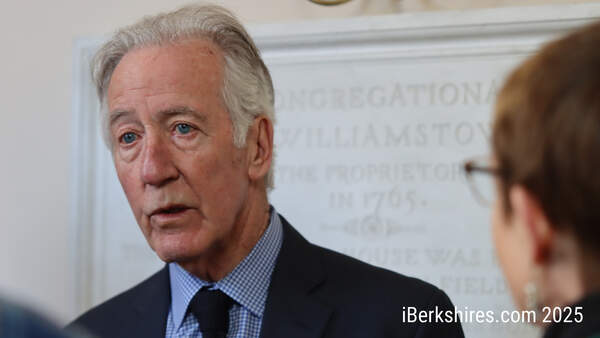Clark Art Announces Research and Academic Program Fellowships
WILLIAMSTOWN, Mass. — The Clark Art Institute's Research and Academic Program (RAP) announces the appointment of its 2025–2026 class of Fellows for summer 2025 and the upcoming academic year.
The Clark Art Institute is one of a small number of institutions globally that is both an art museum and a center for research, critical discussion, and higher education in the visual arts. Through RAP, the Clark hosts a residential fellowship program that welcomes leading scholars from around the world for periods ranging from two to nine months. To date, the community of Clark Fellows numbers more than 430 individuals hailing from thirty countries, forming a global network of scholars united through the shared experience of academic pursuits undertaken within a leading art history library and on the bucolic grounds of the Clark.
"The fellowship program at the Clark is about building relationships across distinct disciplines and perspectives," said Caroline Fowler, Starr Director of the Research and Academic Program. "I am always surprised by the ability of the diverse cohorts to forge bonds and transform their own research and writing through engaging in conversation. It is so vital to nourish the importance of expertise, scholarship, and divergent methods within art history, and it is always a privilege to welcome our new class of fellows."
While in residency at the Clark, Fellows pursue independent research projects that span a wide variety of topics and pursuits, including writing, conceptualizing exhibitions, and studying vital issues in art history and the humanities. The Clark's library collection—recognized as one of the leading art history libraries in the United States—serves as a central resource for researchers. Scholars live in apartments in a house close to the Clark's campus, providing a collegial environment that fosters collaboration, ongoing dialogue, and exchange of ideas.
"The Fellows program is central to the mission of the Clark as a research center for art history," said Olivier Meslay, Hardymon Director of the Clark. "The breadth of their projects, and the opportunity to engage with experts from around the world about their research, is one of many programs at the Clark that plays a role in making the Northern Berkshires an international art history destination."
In June, RAP celebrates its twenty-fifth anniversary. Past fellows, former conference conveners and participants, previous RAP and Clark staff member, and a host of other invited scholars, curators, and practitioners will convene for lectures, roundtable conversations, seminars, film screenings, special tours, and object sessions at the Clark from June 25–28.
Gathering for four days under the theme, Writing Art History, participants are invited to think together about the ways in which writing art history is changing rapidly. Events are free and open to the public. Visit clarkart.edu/RAP25 for the full conference program.
Fellowships for 2025–2026 are awarded to:
Summer (July–August 2025)
Clark Fellows: Ernst van Alphen, professor emeritus, Leiden University, the Netherlands; Mieke Bal, professor emerita, University of Amsterdam, the Netherlands; Nika Elder, American University, Washington, D.C.
Short-Term Beinecke Fellows: Cammy Brothers, Northeastern University, Boston ; Masimba Hwati, Akademie der Bildenden Künste, Vienna, Austria
Fall (September–December 2025)
Clark Fellows: Julie Harris, independent scholar, Chicago; Leslie Geddes, Tulane University, New Orleans; Keelan Overton, independent scholar, Santa Barbara, California
Short-Term Class of 1974 Fellow: Gabriele Finaldi, National Gallery, London,
Clark / Oakley Humanities Fellow: Charmaine Nelson, University of Massachusetts, Amherst
Futures Fellow: Jeong Han Kim, Seoul National University, Korea
Spring (February–June 2025)
Clark Fellows: Ana Lucia Araujo, Howard University, Washington, D.C.; Alice Miceli, independent scholar, Rio de Janeiro and New York City
Michael Ann Holly Fellow: Jesús Muñoz Morcillo, Karlsruhe Institute of Technology, Germany
Clark / Oakley Humanities Fellow: Charmaine Nelson, University of Massachusetts, Amherst
Beinecke Fellow: Luis Vargas Santiago, Institute of Aesthetic Research, National Autonomous University of Mexico, Mexico City
Gould Foundation Fellow: Jean Hérald Legagneur, State University of Haiti, Port-au-Prince, Haiti















